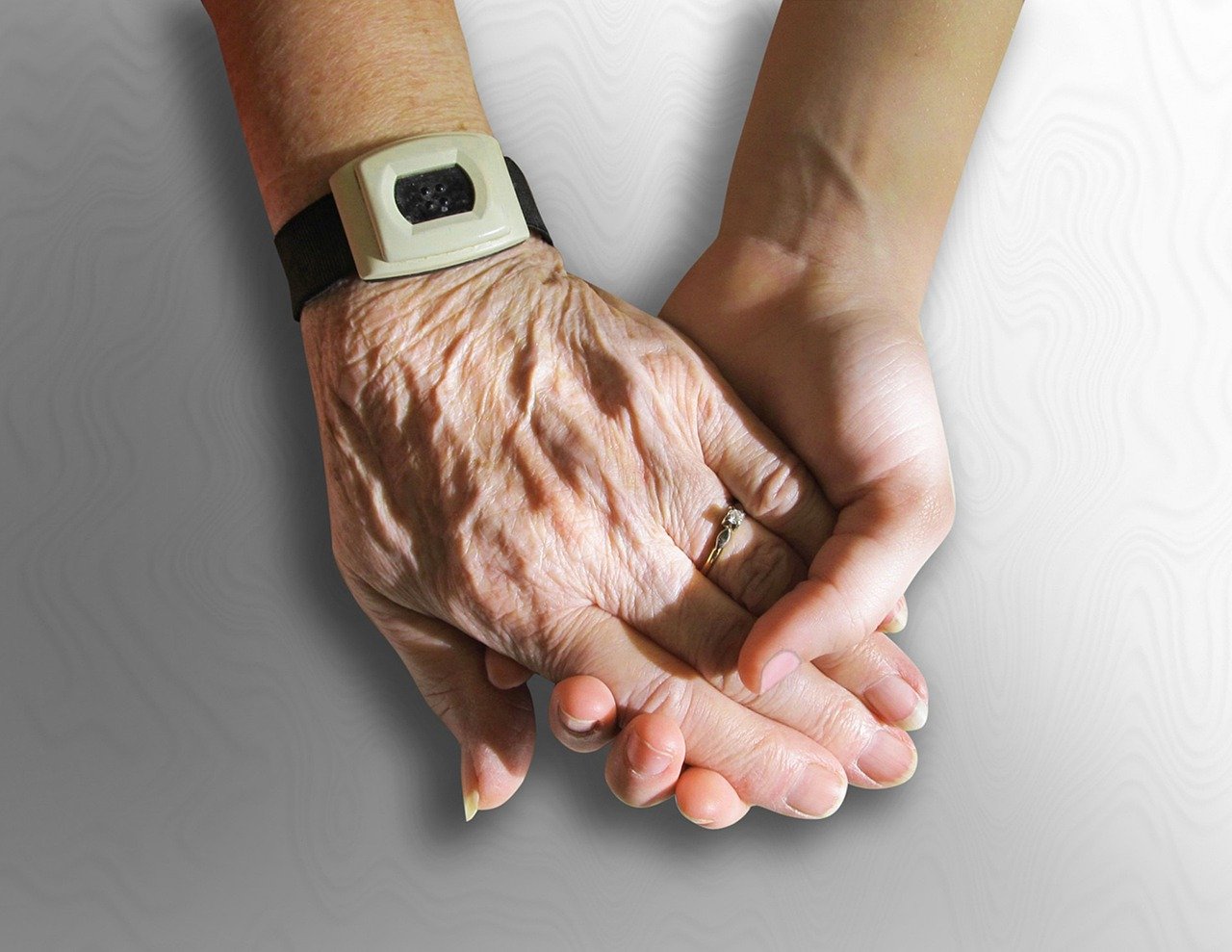 Foto: PublicDomainPictures / Pixabay
Foto: PublicDomainPictures / PixabayThe number of people in need of long-term care in Germany has been growing for years. As a result, the proportion of students involved in the care of parents, grandparents or partners is also increasing. Experts put the figure at between five and ten per cent. To mark today’s European Carers Day, the CHE Centre for Higher Education has teamed up with the Familie in der Hochschule e.V. association to publish an information brochure on “studying with caring responsibilities”.
Experts – such as those from the national association Familie in der Hochschule e.V. – estimate that every university seminar is attended by an average of one to two students with caring responsibilities. Caring, which is often time-consuming and both mentally and physically stressful, can place great demands on those students. This can have serious consequences for their studies, ranging from missed deadlines to dropping out of university early.
The latest guide from the “CHE kurz + kompakt” series now provides answers to key questions on support services for students with caring responsibilities. Depending on the university and the student’s personal situation, this can mean exemption from compulsory attendance, longer deadlines for seminar papers, personal timetables or the granting of academic leave of absence. Students who are not primarily responsible for caring for relatives can also apply for such relief.
The conditions require that the student provides informal care for an extended period. This means performing household tasks that a person can no longer do due to age or illness, including cleaning, shopping and communicating with health insurance companies. It is easier for students to be recognised as carers if a care grade has been determined for the person in their care. That said, the criteria and supporting documents required to qualify as a carer differ greatly from university to university.
Claudia Batisweiler from the University of Oldenburg’s Family Service advises students to apply for such relief early on, before things get too difficult: “Students are often able to combine their studies with caring responsibilities for a while. But to avoid jeopardising their own health and their university studies in the long term, they should seek support at an early stage – even if the issue of care is, unfortunately, still often a taboo subject,” she explained. The first points of contact on campus for students with caring responsibilities are usually the family offices, psychosocial counselling centres and student advisors.
If a student is officially classed as a family carer, they often have the option of taking leave of absence for a certain period, much like maternity leave or parental leave. Although students on leave of absence are not eligible for BAföG student grant payments, they can apply for unemployment benefit II and other social benefits.
Other obstacles facing students in their day-to-day university life, according to experts from the Familie in der Hochschule e.V. association, are the frequent rigidity of programme structures, a lack of part-time options, and funding problems caused by prolonged periods of study. “There is no reasonable explanation for the fact that, in many cases, family carers qualify for benefits from care grade 2, but students can only receive extended BAföG payments if they look after a person requiring care in care grade 3,” stated Sarah Wenz, Spokesperson on the Board of Familie in der Hochschule e.V., calling for a corresponding adjustment of the current BAföG regulations.
There are no reliable figures on students with caring responsibilities in Germany at present. Around five per cent of people aged 18 to 24 in Germany are informal carers who perform household tasks that a person is no longer able to do due to age or illness. A survey conducted at Hamburg University of Applied Sciences in 2017 found that 15 per cent of students had caring responsibilities.
“Fortunately, there is widespread agreement in Germany that students with children need flexible study options and support. But the issue of family friendliness does not end with childcare,” remarked Frank Ziegele. “To ensure the provision of reliable arrangements and options for carers on campus, studies and surveys need to be conducted to provide greater transparency about the group of students with caring responsibilities, their needs, and the obstacles they face in their day-to-day university life,” stated the CHE Executive Director.
About the publication:
In the “CHE kurz + kompakt” series, each six-page edition provides answers to the key questions regarding the issue. The information package, available in pdf format, is rounded off with an annotated list of links and checklists for taking the next steps and investigating further. The publication entitled “CHE kurz + kompakt – Studieren und Angehörige pflegen” (CHE short + compact – Studying and caring for relatives) was written by Claudia Batisweiler and Jan Thiemann. The publication is a collaborative effort between the CHE Centre for Higher Education and the Familie in der Hochschule e.V. association.
The publication is in German.
